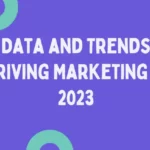In the world of digital marketing, data is king. The more information you have about your audience, their preferences, and their online behavior, the better equipped you are to create targeted and effective marketing campaigns. But with so much data available, it can be overwhelming to know where to start.
That’s why we’ve compiled a list of the top 10 must-have digital marketing data sources that every marketer should be utilizing. From website analytics to social media insights, these data sources will provide you with valuable information to drive your marketing strategy forward. So if you’re ready to take your digital marketing efforts to the next level, keep reading to discover the essential data sources you need in your toolkit.
1. Google Analytics: Unveiling User Behavior Patterns
No digital marketing strategy is complete without the integration of Google Analytics. This robust tool offers a treasure trove of information about your website’s performance. From tracking user behavior and demographics to measuring conversion rates and identifying high-performing pages, Google Analytics empowers you with actionable insights to refine your marketing approach.
2. Google Search Console: Enhancing Search Visibility
To dominate the digital realm, understanding your website’s search performance is paramount. Google Search Console provides invaluable data on search queries, click-through rates, and average positions. By identifying keywords that drive traffic and optimizing your content accordingly, you can ascend the ranks of search engine results pages (SERPs) and boost your online visibility.
3. Social Media Insights: Harnessing the Power of Social Platforms
In the era of social media dominance, harnessing platforms like Facebook Insights, Twitter Analytics, and Instagram Insights is essential. These data sources offer intricate details about audience engagement, post reach, and demographics. Crafting content tailored to your audience’s preferences can lead to higher engagement rates and foster brand loyalty.
4. Marketing Automation Platforms: Personalization and Targeting
Modern digital marketing revolves around personalized experiences, and marketing automation platforms like HubSpot and Marketo play a pivotal role. These platforms provide data on user interactions, enabling you to create personalized content journeys. By delivering relevant content at the right time, you can nurture leads and drive conversions.
5. Competitor Analysis Tools: Gaining a Competitive Edge
Understanding your competitors’ strategies is crucial for staying ahead in the digital race. Tools like SEMrush and Ahrefs offer insights into your competitors’ organic and paid search efforts, backlinks, and top-performing content. Leveraging this data allows you to identify gaps in your own strategy and capitalize on untapped opportunities.
6. Email Campaign Analytics: Refining Communication
Email marketing remains a potent tool for nurturing leads and retaining customers. Through email campaign analytics, you can assess open rates, click-through rates, and conversion rates. By studying user behavior, you can tailor your email content, subject lines, and send times for maximum impact.
7. Customer Relationship Management (CRM) Data: Fostering Relationships
A robust CRM system is a goldmine of customer insights. It provides data on customer preferences, purchase history, and interactions with your brand. Utilizing this data enables you to create personalized marketing campaigns that resonate with your audience, driving customer loyalty and retention.
8. Heatmaps and User Session Recordings: Uncovering User Experience
Understanding how users interact with your website is pivotal for optimizing user experience. Heatmaps and user session recordings offer visual representations of user behavior, highlighting areas of interest and friction. This data guides website design improvements, ensuring seamless navigation and increased conversions.
9. Content Performance Analytics: Fine-Tuning Content Strategy
Creating valuable content is at the heart of successful digital marketing. Platforms like BuzzSumo and Google Trends provide insights into content performance, popular topics, and trending keywords. By aligning your content strategy with user interests, you can attract more organic traffic and establish thought leadership.
10. E-commerce Analytics: Maximizing Sales Potential
For e-commerce businesses, optimizing online sales is paramount. E-commerce analytics tools like Shopify Analytics and Magento Business Intelligence offer data on product performance, shopping cart abandonment rates, and customer behavior. By identifying bottlenecks in the sales funnel, you can enhance the user journey and maximize conversions.
In Conclusion
The digital marketing landscape is teeming with opportunities, and data is the key to unlocking success. By harnessing the power of these must-have digital marketing data sources, you can make informed decisions, tailor your strategies to resonate with your audience, and achieve remarkable results. Remember, the world of digital marketing is ever-evolving, so staying up-to-date with the latest trends and tools is essential for maintaining your competitive edge.






